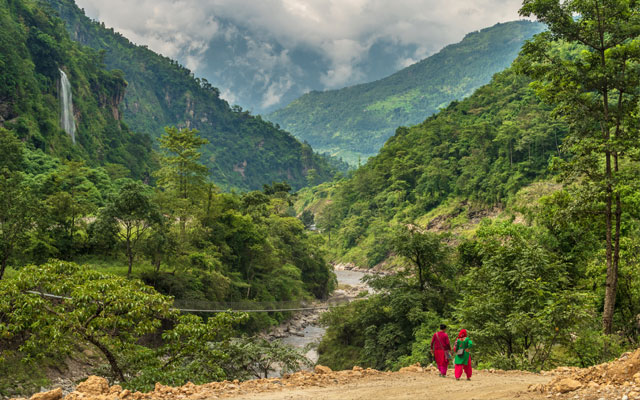A recent prototype study by Nepal-based adventure travel specialist, Himalayan Adventure Therapy has found an intricate relationship between travel and ecological sustainability throughout the country’s diverse forest regions.
Research indicates that when human activities align with the preservation of natural environments, the results can be transformative. The Indigenous communities of Nepal, such as the Kirati, Magar, Gurung, and Brahmins, have long revered the elements of nature – fire, water, air – and their stewardship has fostered remarkable restoration of local flora and fauna. Their practices demonstrate that with respect for nature, ecosystems can heal and thrive, suggesting a pathway to mitigate the impacts of climate change.

Remarkably, forest cover in Nepal has seen a resurgence of roughly 40 per cent over recent decades, largely due to community-based forest management initiatives and creative reforestation efforts that empower local populations. This rejuvenation has been essential in combating soil erosion, maintaining biodiversity, and enhancing the country’s ability to sequester carbon.
However, a critical concern arises with the Nepali government’s push for urbanisation, which jeopardises older forest ecosystems. The increase in forest cover can be misleadingly attributed to internal migration and societal shifts in a country grappling with deep-rooted corruption.
In this context, contributions from individuals across the globe hold significant value and merit careful consideration. Instead of directing funds to large institutions, travellers have the chance to support on-the-ground climate action that can lead to tangible results. By patronising reputable, impact-oriented local organisations and participating in conservation efforts, travellers can engage meaningfully with Nepalese communities.
Initiatives like reforestation, responsible waste management spearheaded by HAT, wildlife monitoring by WWF Nepal, and immersive experiences with local farmers highlight how travellers can enhance their experiences while positively impacting the environment.
Nabin Dhital, CEO and trip operation in-charge of Himalayan Adventure Therapy, said: “Travelling in Nepal allows visitors to connect deeply with nature while making direct contributions to conservation efforts. We envision tourism as a driving force for positive change in the ecology and local communities of every destination.”










